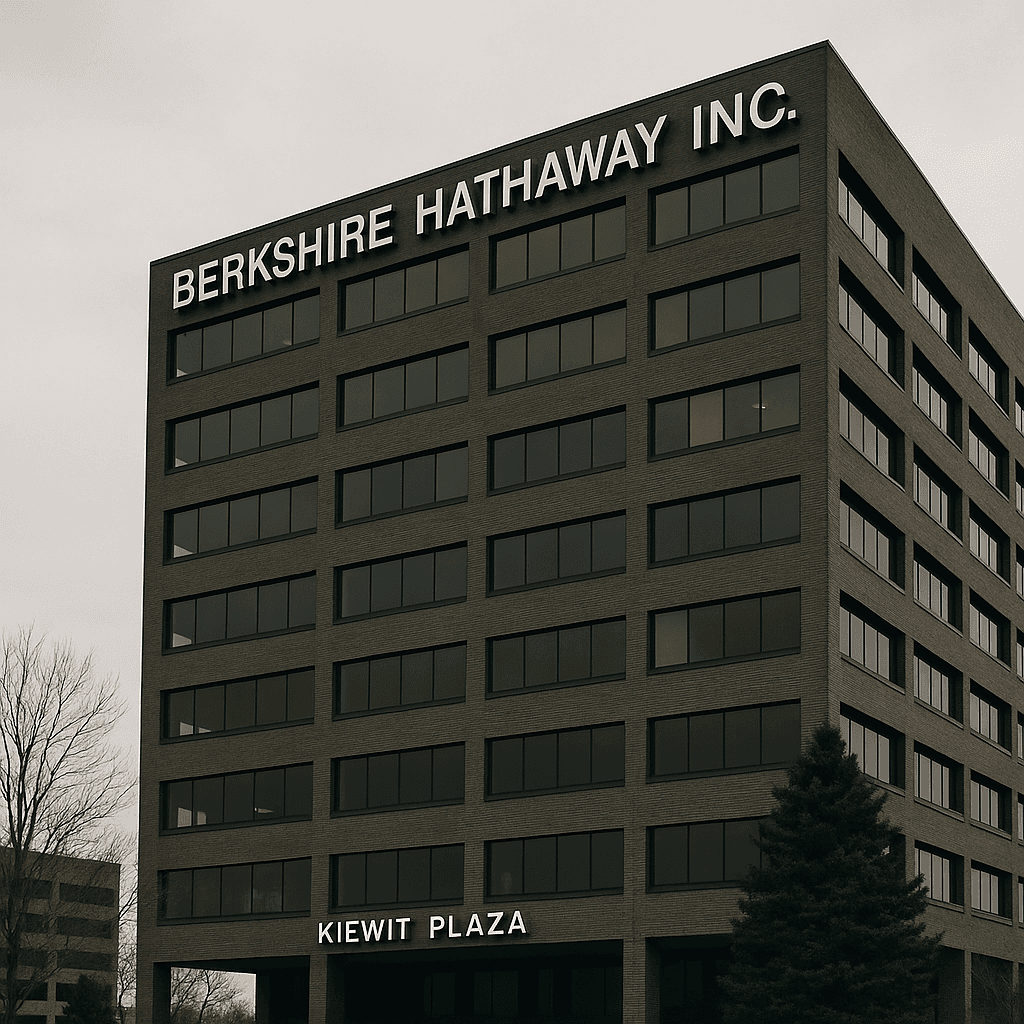The Truth About the Future of Berkshire Hathaway Stock (and Why I’m Not Worried)
When Warren Buffett announced his plan to step down as CEO of Berkshire Hathaway, the investing world stopped to take a deep breath. For nearly 60 years, Buffett has delivered shareholders an average annual return of 20%. That’s turned countless ordinary investors into multimillionaires and cemented his legacy as one of the greatest investors of all time.
But with Buffett stepping back, Berkshire faces a future without its legendary leader. What does that mean for the company—and for long-term investors like us who follow the Rule #1 philosophy?
Let’s unpack what comes next for Berkshire Hathaway, who will lead the company, and what history tells us about the stock’s future.
Buffett Built a Business to Last
When Buffett took over Berkshire Hathaway in 1965, it was a failing textile company. He quickly realized he’d need to reinvest into better businesses—companies with durable competitive advantages, strong management, and predictable cash flow.
Over time, that strategy transformed Berkshire into a three-pillar powerhouse:
Insurance Operations: GEICO, National Indemnity, and General Re all provide massive, steady cash flow through premiums—money that Buffett could reinvest elsewhere.
Wholly Owned Businesses: Burlington Northern Santa Fe Railroad, Berkshire Hathaway Energy, See’s Candies, Brooks, and Dairy Queen all fall under this umbrella.
Stock Portfolio: Iconic stakes in Apple, Coca-Cola, American Express, and Bank of America form the publicly traded side of the empire.
And Berkshire’s cash position—roughly $344 billion as of 2025—makes it one of the most financially secure companies in the world.
Meet the Successors: Greg Abel and Ajit Jain
Buffett’s genius wasn’t just in picking stocks—it was in picking people.
For years, Berkshire’s non-insurance operations have been run by Greg Abel, and its insurance empire by Ajit Jain. Buffett once said, “If Charlie, I, and Ajit are ever in a sinking boat, and you can only save one of us—swim to Ajit.” That’s how much he values his leadership.
But when Buffett officially retires at the end of 2025, it’s Greg Abel who will step in as CEO. Abel has been with Berkshire since 2000, when it acquired MidAmerican Energy, and has proven himself a disciplined, long-term operator.
In Buffett’s own words, Berkshire’s businesses are already “run by extraordinary managers” who don’t need micromanaging. That culture of independence and trust is why Berkshire’s transition is smoother than most corporate handoffs.
What Happens to Berkshire’s Stock Portfolio
The part of Buffett’s job that’s hardest to replace is his stock-picking. Compounding capital at 20% annually for six decades is nearly impossible to replicate.
But Buffett’s been planning for this. Todd Combs and Ted Weschler—two seasoned investors—have been managing portions of Berkshire’s portfolio for years. Meanwhile, Greg Abel will oversee all capital allocation decisions, including how to invest Berkshire’s cash hoard.
That combination of disciplined capital management and decentralized decision-making is what will keep Berkshire’s machine humming.
2025 Investor’s Survival Guide
Learn our proven strategy to protect and grow your portfolio amid inflation, governmental shifts, and unprecedented volatility
When Buffett Leaves, Expect Emotion—Not Logic
When Buffett announced he was stepping down, Berkshire’s stock dipped about 5.5%—even though everyone knew it was coming.
When he eventually passes away, the headlines will be everywhere, and the emotional reaction will likely be much larger. Expect volatility, because markets in the short term act like a voting machine—they respond to emotion and headlines, not fundamentals.
But as Buffett has always taught us: In the long run, the market is a weighing machine.
And when the dust settles, what the market will weigh are the facts:
Berkshire owns over 60 high-quality companies.
It generates massive cash flow from stable, recession-resistant businesses.
It’s sitting on hundreds of billions in cash.
Those fundamentals won’t change just because Buffett isn’t writing the annual letter anymore.
A Lesson from Apple: The Business Outlives the Leader
When Steve Jobs passed away in 2011, investors panicked. Could Apple survive without him?
The stock initially dipped—but then rallied to all-time highs because the business itself was a cash-generating powerhouse. iPhone sales, MacBooks, and Apple’s ecosystem continued to thrive.
The same logic applies here. Berkshire’s future isn’t about one man—it’s about the machine he built. Its fundamentals, diversification, and leadership bench are second to none.
What This Means for Long-Term Investors
For those of us following Rule #1 principles—buying wonderful companies at fair prices—Berkshire remains a textbook example.
It has:
Durable competitive advantages across multiple industries.
Exceptional leadership continuity.
Financial strength that can weather any downturn.
So, while short-term traders may sell on emotion, long-term investors should see any sell-off as an opportunity—just like we did when Apple wobbled after Jobs.
Because great businesses, bought at a discount, eventually weigh out in your favor.
My Take: Berkshire’s Bright Future
Buffett’s legacy isn’t going anywhere. The systems, culture, and investing discipline he built are baked into Berkshire’s DNA. Greg Abel and Ajit Jain will carry that forward with the same focus on value, patience, and integrity.
The real story here isn’t about the end of an era. It’s about the continuation of one of the greatest business models ever built.
And as investors, that should make us optimistic—not fearful.
If you’d like to learn how to invest the Warren Buffett and Charlie Munger way—how to find wonderful companies, calculate their intrinsic value, and buy them with a margin of safety—join me and my team for our 3-Day Investing Workshop.
We’ll teach you the exact strategies Buffett used to turn Berkshire into a trillion-dollar empire.
Attend a Rule #1 Workshop
Learn how to conduct research, choose the right companies for you, and determine the best time to buy.

